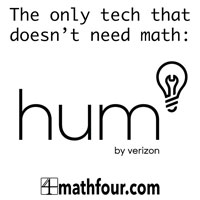Through the Living Math Yahoo Group, I got this list for the typical courses of study for various grade levels. In each grade level link, there’s a list of math concepts.
Since daughter is two, I immediately clicked on the preschool link. I was a little offended to find such a long reading list and no list titled, “Math.”
And then I read the list. In almost every line I found math concepts!
If you teach your little one these things on this list, check out the advanced math they will also be getting!
(Note: my comments are italicized.)
Size
- Understands big and little.This preschool math concept sets them up for volume comparisons.
- Understands long and short. This one gets them ready for length comparisons.
- Matches shapes or objects based on size. Forerunner to inscribing shapes in other shapes, dissecting shapes to understand area formulas, etc. Also getting them ready for pattern recognition.
Colors and Shapes
- Recognizes and names primary colors. This preschool math concept is the beginning of pattern recognition.
- Recognizes circles. Getting ready for the idea of a shape with no sides and a shape with infinite sides.(whoa!)
- Recognizes rectangles. Setting up for all sorts of area formulas – since just about every regular shape can be made into a rectangle with scissors and glue.
- Matches shapes or objects based on shape. The math concepts here get them ready for the geometric concept of similar and even more pattern recognition.
- Copies shapes. Kinesthetically understanding concepts of geometry. This one also helps them get ready for pattern recognition – or making their own patterns!
Numbers
- Counts orally through 10. This is less of a preschool math concept and more of a “you just really gotta know this” concept – kinda like the alphabet.
- Counts objects in one-to-one correspondence. One-to-one correspondence is a huge and important concept in algebra.
- Understands empty and full. Volume comparisons as well as the grouping of objects to fill a volume.
- Understands more and less. The foundation of ordering numbers and understanding relations.
Position and Direction

- Understands up and down. Forerunner of the number line.
- Understands in and out. This preschool math concept gets them into early set theory.
- Understands front and back. More number line stuff.
- Understands over (on) and under. The math concepts here get them ready for setting up fractions.
- Understands top, bottom, middle. Standard preschool readiness and also the basics of ordering.
- Understands beside and next to. Gets them ready to multiply a number by a variable by just standing the number next to the variable: 3x means 3 times x.
- Understands hot and cold. Getting ready to measure temperature.
- Understands fast and slow. Getting ready to measure speed as well as rates.
Time
- Understands day and night. This preschool math concept gets them ready to expand into bigger and bigger time units – which will allow them to eventually understand the ideas of infinity and infinitely small. Curiously, this is also pattern recognition – every day you get day and every day you get night!
- Knows age and birthday. This seems to be another “good to know” thing. However, it is another forerunner to big time units.
More…
There are many more preschool math concepts that can be spun off from the other lists, like Reading and Social-Emotional Development. I’ll be writing up how to integrate math in those in a few days!
Am I missing anything? Let me know in the comments.
Related articles

This post may contain affiliate links. When you use them, you support us so we can continue to provide free content!








Kuddos on tackling a difficult and often side step key to early math success. However, I think you might have missed a few rather important early learning math concepts and I would encourage you to explore the Experience Early Learning framework link below.
http://www.mothergoosetime.com/wp-content/themes/mgt/pdf/EEL_SkillsContinuum.pdf
I have found this framework to be valuable tool in my own practice as have many of the parents and teachers I have worked with. The learning framework is supported by sound research based practices and cognitive learning theories. Please let me know what you think.
I grabbed that list from the Worldbook site, so thanks for sharing the much more comprehensive skills list, Keri. It looks like an awesome guide!